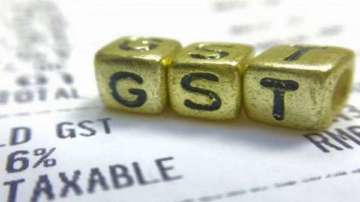Gift vouchers, cash-back vouchers given to customers or suppliers are treated as goods and would be liable to 18 per cent GST, the Authority for Advance Ruling (AAR) has said.
Bengaluru-based Premier Sales Promotion Pvt Ltd approached the AAR's Karnataka bench on the GST rate that would apply to supply of gift vouchers, cash-back vouchers, or supply of e-vouchers with multiple options. The applicant is involved in the trading vouchers in the course or furtherance of business.
With respect to gift vouchers, AAR notes that the applicant purchases the said vouchers and sells the same to its clients, who in turn distributes them to their clients/customers and the customers use them to discharge their obligation to pay consideration for goods or services procured by them from their suppliers. Hence, the said gift vouchers would not obtain the character of money at the time of their supply to applicant.
For cash-back vouchers and multiple options e-vouchers, AAR observed that the said vouchers cannot be covered under the definition of "money" at the time of supplying them but would take the colour of money only when used for payment of consideration for supply of goods or services procured by end-user.
Passing the ruling, the AAR said the supply of vouchers are taxable as goods and will attract an 18 per cent goods and services tax.
AMRG & Associates Senior Partner Rajat Mohan said AAR has held that the supply of e-vouchers is taxable as goods at 18 per cent, irrespective of the underlying item procured using such vouchers. This ruling also rejected the special provisions mentioned in GST rules concerning the time of supply-related vouchers.
"This ruling will impose a tax of 18 per cent on all e-vouchers, whether identifiable or not on the issuance of such vouchers.
"This will lead to accumulation of tax credit for companies using e-vouchers and supplying products like jewellery, household necessities such as edible oil, sugar, spices, tea, and coffee, processed food, laptops/ computers, and life-saving drugs that are listed for the lower rate of taxes," Mohan added.
EY Tax Partner Abhishek Jain said most industry players are not treating vouchers per se as goods and are paying GST basis ultimate supply against which such vouchers are used.
"However, this ruling says vouchers are covered under goods and taxing the supply of vouchers at 18 per cent GST (residuary entry). This ruling would create uncertainty in the industry and lead to litigation.
"The government should come up with comprehensive guidelines regarding the taxability of vouchers for consistent practices and avoiding litigation," Jain added.
ALSO READ | Need a LPG connection? Just give a missed call to 8454955555
ALSO READ | Supreme Court refuses to entertain pleas of Amazon, Flipkart against CCI probe
Latest Business News

